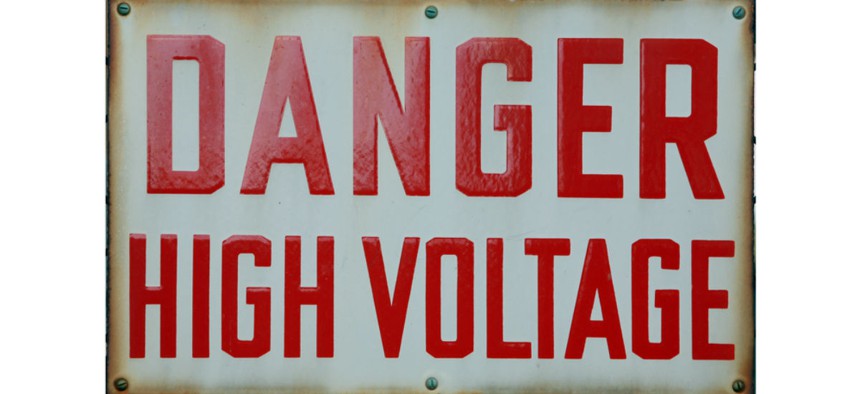
mikeledray/Shutterstock.com
Colliding With the Third Rail
Will exposing a problem in your organization make a difference, or simply get you fired?
It is the classic dilemma of a corporate mouthpiece: The client doesn't want to talk:
- Crisis? "Let's wait for the lawyers."
- Bad news? "It'll blow over."
- Gossip? "Just ignore that."
The underlying assumption is always the same, too: "If you give them any attention, you're only legitimizing their argument."
Recently I learned this term, "the third rail." As in super-sensitive, controversial topics too dangerous for a politician to discuss. Whether you're in politics or not, it is unfailingly "third rail" for a communicator to argue with the client's discomfort at arguing their case in the court of public opinion.
One of the all-time best theorists of organizational dysfunction, Chris Argyris, called the failure to question assumptions a problem of "double-loop learning." That is to say, unhealthy organizations not only take certain incorrect things for granted, but they resist—almost to the death, and sometimes fatally—any attempt to critically examine those beliefs.
In an unhealthy organization, communication about things that matter is impossible, because:
- Problems are denied until they become an unpleasant crisis. The prevalent belief: "out of sight, out of mind."
- Crises are ignored until they become catastrophes: "Talking about problems only makes them real."
- Great communicators, who recognize what's going on and try to moderate the effect by opening the spigot of speech, are viewed as a threat and eliminated.
A very long time ago I printed a thousand pages of research on a very real crisis that was about to explode, and did explode, and it was awful. But this was before it happened. And the person to whom I showed it looked at the pile of paper and turned to me and said: "Be careful."
The person who said this was not my "enemy." Just the opposite—they were obviously concerned for my professional welfare. Because I'd hit that third rail, full-on, dead center. If I pressed forward any further, I'd undoubtedly cross the red-hot, nuclear "red line."
In the end I let it go. I had reached the limits of my effectiveness and my pay grade; persistence would only have served to get me fired. In the many years since I've come close to that "third rail" many a time. And I think I've figured out the secret to putting your hand on that molten iron, without coming away irretrievably burned.
You realize this: Bad situations build up over time. They're complex; they're multistakeholder; they normally involve a really smelly stew of greed, sometimes sex, and the lust for power. Only the fool would dare to step in without knowing if they're pulling on the red wire that sets off the bomb, or the green one that defuses it.
Most errors in judgment involve ignorance like this, plus a healthy measure of ego—wanting to be the best, to solve the intractable problem that seemingly nobody else could get their arms around. A better course of action, if you're a communicator? Look around you, keep your instinctive and emotional antennae high, speak calmly and logically about what you see, talk about risk, but most importantly, draw in "the wisdom of the team."
By working together, leveraging the power of multiple intelligences, knowledge bases and institutional memories—plus the innate desire we all have to make a difference—the chances of succeeding are much greater than they are when you go it alone.
Even if you can't make a dent in this round, you're more likely to live to fight another day.
Dannielle Blumenthal, Ph.D., is a communications specialist in government, as well as a blogger and speaker on branding and social media. The views expressed are her own and do not represent a federal agency or the government as a whole. Follow her on Twitter at @oursocialfuture.
(Image via mikeledray/Shutterstock.com)






